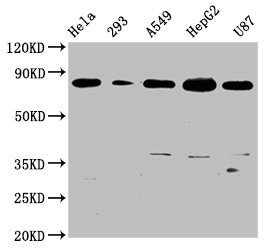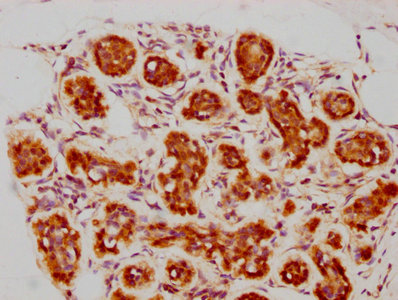The production of the BAG3 recombinant monoclonal antibody uses DNA recombinant technology and in vitro genetic manipulation. It starts with immunizing an animal using a synthesized peptide derived from human BAG3, followed by the isolation and selection of positive B cells. The selected B cells undergo screening and single clone identification. The genes encoding the light and heavy chains of the BAG3 antibody are then amplified using PCR and inserted into a plasmid vector. This recombinant vector is subsequently transfected into a host cell line to enable antibody expression. The BAG3 recombinant monoclonal antibody is purified from the cell culture supernatant using affinity chromatography. It demonstrates specificity towards human BAG3 protein and is well-suited for ELISA, WB, and IHC applications.
BAG3 plays a critical role in maintaining cellular homeostasis by regulating protein quality control, apoptosis, and autophagy. BAG3 functions as a co-chaperone for Hsp70, regulating its ATPase activity and assisting in the refolding of misfolded proteins. BAG3 also targets misfolded proteins for degradation by autophagy through its interaction with HspB8, which promotes the formation of autophagosomes. Dysfunction of BAG3 has been associated with various human diseases, including cancer, neurodegeneration, and myopathies.





